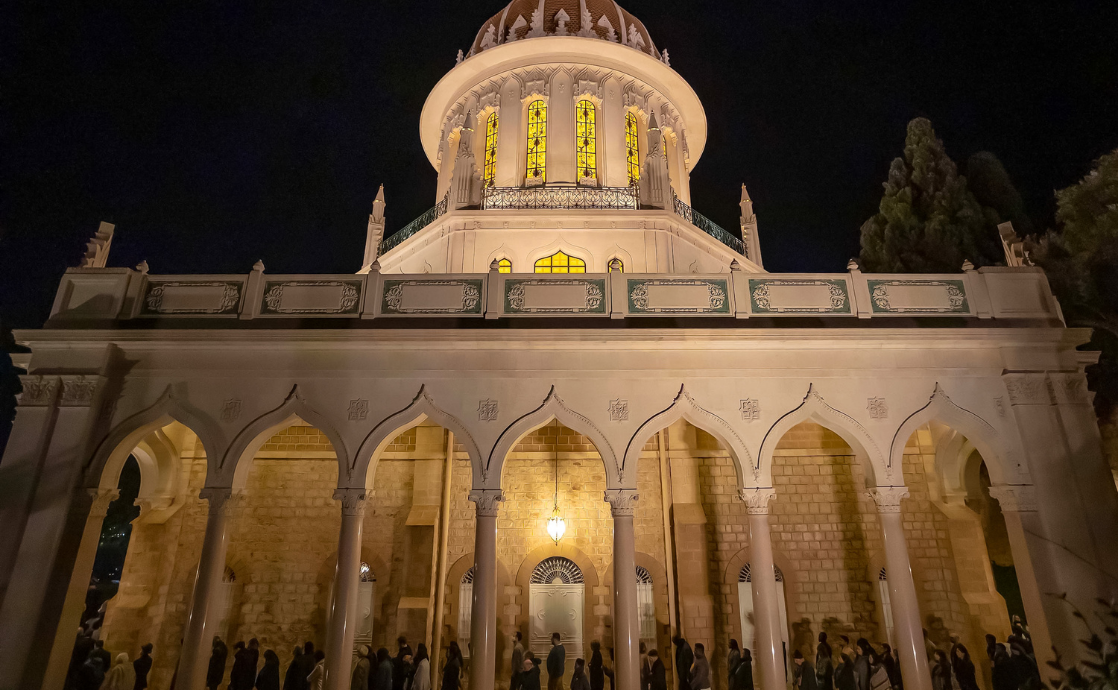As we commemorate the centenary of ‘Abdu’l-Bahá’s passing, a profound reflection on his exemplary life becomes increasingly pertinent. The life and teachings of ‘Abdu’l-Bahá offer a rich tapestry of guidance and inspiration that can transform our understanding of spirituality, community, and social justice. This article seeks to delve deeply into the myriad dimensions of his legacy and illuminate the transformative power of his teachings.
‘Abdu’l-Bahá, the son of Bahá’u’lláh, the founder of the Bahá’í Faith, epitomizes the ideals of service, love, and unity. His life, marked by trials, resilience, and an unwavering commitment to the principles of his father, is a beacon that continues to inspire millions globally. His passage in 1921 was not just a personal loss but a pivotal moment in the Bahá’í community and beyond, prompting a collective introspection on spiritual values and societal responsibilities.
At the heart of ‘Abdu’l-Bahá’s message lies the concept of service—a call to transcend self-interest and serve humanity. His life illustrates this profound principle. His participation in the social issues of his time, especially during his imprisonment in the Ottoman Empire, highlight his commitment to justice and equality. ‘Abdu’l-Bahá’s message urges us to prioritize the welfare of others, challenging the pervasive individualism that often dominates contemporary society.
The centenary invites a critical re-evaluation of the role of service within the framework of modern spiritual practice. Reflecting on ‘Abdu’l-Bahá’s life encourages followers to shift their perspectives; service is not merely an act but a way of being. By embodying this principle, individuals can cultivate a profound sense of purpose that transcends materialistic pursuits, leading to personal fulfillment and communal harmony.
In his numerous writings and speeches, ‘Abdu’l-Bahá extols the virtues of love and unity—elements that are particularly salient in today’s polarized world. His assertion that “the earth is but one country, and mankind its citizens” resonates deeply, urging individuals to recognize the interconnectedness of humanity. This egalitarian viewpoint can be seen as a clarion call to address the deep-seated divisions that pervade societal structures, advocating for a global ethos rooted in compassion and understanding.
The teachings of ‘Abdu’l-Bahá promote a vision where diversity is celebrated, fostering an atmosphere of inclusivity and peace. By reflecting on his life, individuals are encouraged to embrace a mindset that transcends cultural and religious boundaries, fostering an appreciation for the richness that diversity brings. Such an embracement not only enhances communal relations but serves as a foundational pillar for global harmony.
Additionally, ‘Abdu’l-Bahá’s emphasis on education and the empowerment of women is a particularly noteworthy aspect of his legacy. He recognized education as a transformative force, capable of awakening the innate capacities of individuals and communities. His statements advocating for universal education highlight the importance of equitable access to knowledge and the nurturing of potential, particularly for women and marginalized groups.
The centenary serves as an opportunity to reflect on the ongoing struggle for gender equality and the imperative for inclusive educational policies. ‘Abdu’l-Bahá’s insights illuminate paths for advocacy, urging societies to progress towards a world where every individual has the opportunity to contribute to their community. In doing so, we honor his legacy by reaffirming the integral role education plays in the advancement of humanity.
Moreover, the concept of sacrifice looms large in ‘Abdu’l-Bahá’s narrative. His dedication to the well-being of others often meant personal sacrifice. Reflecting on this aspect of his character challenges contemporary notions of success and achievement, which are often measured in terms of material gains. Instead, ‘Abdu’l-Bahá invites individuals to contemplate the profound impact of selflessness and altruism, promoting a life ethos rooted in the service of others over personal ambition.
Another essential aspect of his teachings is the importance of consultation and collaboration. Guided by principles of collective decision-making, ‘Abdu’l-Bahá elucidated the transformative potential of collaborative efforts in addressing social issues. In today’s complex world, whether addressing environmental challenges or social injustices, his call for unity in diversity holds significant relevance. Reflecting on his methods encourages individuals to engage in open dialogues, fostering an environment where different perspectives are valued and harnessed toward constructive outcomes.
The centenary of ‘Abdu’l-Bahá’s passing also prompts a reevaluation of the spiritual dimensions of our lives. His teachings advocate for a balance between spiritual and material pursuits, stressing the importance of inner development as an underpinning for outward actions. Individuals are encouraged to engage in reflective practices, nurturing a deeper spiritual consciousness that informs their interactions with the world.
Finally, as we reflect on ‘Abdu’l-Bahá’s life, we are called to action—not merely to honor his memory but to embody his teachings in our daily lives. The promises of his legacy challenge us to cultivate a life characterized by service, love, and unity. In doing so, we can not only inspire ourselves but also those around us, contributing to a paradigm shift that advocates for justice, equity, and peace across the globe.
The centenary of ‘Abdu’l-Bahá’s passing is an invitation—a call to rethink our individual and collective roles within society. As his life exemplified, transformation begins within, cascading outward into the world. Engage with his teachings, reflect deeply, and embrace the profound capacity for change that lies within each of us.
